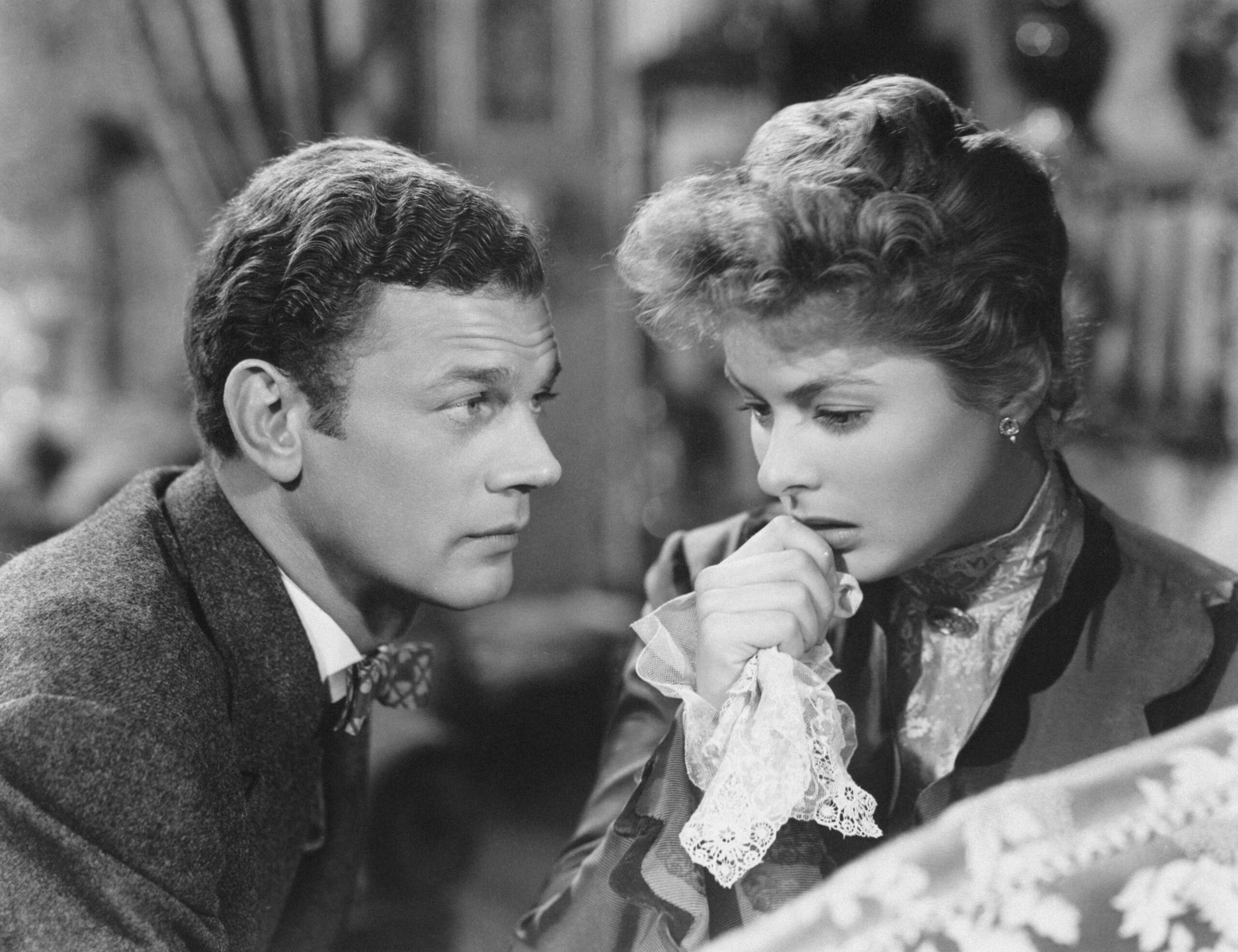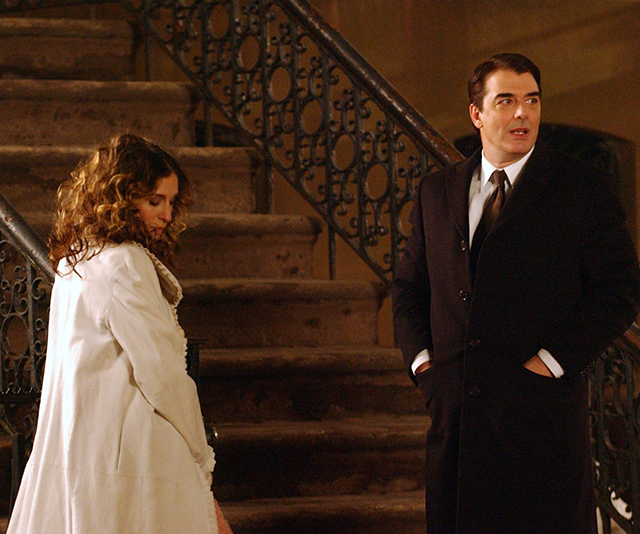Dating seems to have its own language these days – people can be ghosted, benched or bread-crumbed – but there’s one word that pops up a lot, especially in toxic relationships.
Gaslighting is essentially emotionally manipulating someone – and it happens more often than you’d expect.
We chatted to Relationships Australia CEO Elisabeth Shaw about how to spot the signs of gaslighting, plus how to address the issue with your partner and shut it down for good.

Gaslighting in relationships is often talked about, but what exactly is it?
(Getty)What is gaslighting?
The term gaslighting originates from the 1944 drama Gaslight, starring Charles Boyer and Ingrid Berman, about a woman whose husband slowly manipulates her into believing that she is going insane.
In the film, the female protagonist sees the lights flicker for no reason, but her husband tells her that it’s all in her head.
The term is now used in a relationship context to describe a situation when a person will distort the perceptions of their partner to gain power in the relationship and to usually ensure that their partner is focused on them.
The dangerous thing about gaslighting, however, is that while comments sound supportive on the surface, they gradually separate the partner from their social context.
“On the face of it, it can sound alright and it can be very subtle,” says Elisabeth.
“But it builds a picture over time where the person loses confidence in themselves, loses confidence in their own reading of a situation or circumstance, feels less worthy themselves and can actually end up feeling more bonded to the person doing it because it ultimately is coercive and a means of gaining control.”

The term gaslighting originates from the 1944 film Gaslight.
(Getty)Comments and remarks that may indicate gaslighting include phrases like:
“Your friends don’t really like and support you.”
“Your family’s not really on your side, I think they just don’t love you as much as your sister/brother.”
“You’ve never been good at that.”
“I understand you’re not that good at it, we’re not all good at things.”
However because these comments are usually a series of what can look like one-off, subtle remarks, it’s easy to dismiss them, and they can even fly under the radar of friends and family.
Even when they’re brought up, a gaslighter typically responds by invalidating their partner and saying things like “You’re being too sensitive” or “I didn’t mean it that way.”
But Elisabeth says a good way to recognise gaslighting is to ask yourself if you feel better about yourself since entering the relationship.
WATCH BELOW: Body language expert Suzanne Masefield on how to have difficult conversations. Post continues after video…
“Generally, if you could say over this period of time ‘I’ve lost confidence, I’m now more at home, I don’t see my friends as much,’ then that can be one way to help you notice it over time because it is subtle and sometimes you need a bigger span of time to realise what’s happening,” says Elisabeth.
She adds that it’s important to listen to friends and family if they comment on how they dislike the way your partner talks to you, to make sure you don’t join in dismissing it as well.
“Make sure that if someone’s saying ‘That sounded hurtful,’ you don’t just excuse it but you actually do stop and listen because sometimes other people might’ve given you a tip that this isn’t great,” she explains.

If friends and family are noticing your partner saying hurtful things, listen to them.
(Getty)How to confront a partner who is gaslighting you
If you feel like you’ve been invalidated in your relationship, Elisabeth says that the first step to resolving it is building some confidence in your own experience by thinking of examples.
“Certainly if there’s a bigger example like calling you names or saying you’re hopeless at something directly where it was outright rude, you might feel more confident to start with a specific example,” she says.
“But if you’ve already tried that and you find that each example is dismissed, it might be more to say ‘In general, I don’t like how you speak to me, I don’t believe you build me up, I don’t believe the way you generally speak about me is in a proud and respectful way.'”
She adds that you may need to relay numerous examples to describe how you feel like you’re being treated in the relationship, but highlights that the examples aren’t really what matters in the scheme of things – it’s about how you are feeling.

“You want a partner who says and means ‘I’m very sorry that’s your experience and I want to go about fixing it.'”
(Getty)“You want a partner who says and means ‘I’m very sorry that’s your experience and I want to go about fixing it.’ You don’t have to be 100 per cent right or maybe you haven’t chosen the best possible examples, but in the end it’s about that,” she siad.
“In the end, it’s about ‘Do I have a partner who cares about my experience?’ whereas I think often people walk away saying ‘No wonder I was shot down, I’m too sensitive.’ You want a partner who takes you seriously no matter what you’re bringing up.”
Elisabeth highlights that gaslighting is “absolutely” something that she sees in her clients and that it’s one of the behaviours that professionals would commonly see in behaviours under a domestic violence category.
“It’s connected to social isolation because if you lose confidence you tend to withdraw from things and so absolutely we see it in that context,” she explains, before adding that many people consider abuse and violence too strong to describe the situation.
WATCH BELOW: 11 ways to get over your ex. Post continues after video…
“While it is in a pattern of violence and abuse, some people think violence and abuse has to be physical, but emotional abuse can happen within what looks like an otherwise fairly functioning relationship and can be really harmful.
“I think if you look at it just within respectful healthy relationship behaviour, this kind of thing would be seen to be very eroding of a good connection and good intimacy, because if you feel bad about yourself, you don’t feel empowered to address all sorts of things in the relationship, like how to tackle parenting or your sex life or friendship issues or career goals, if you’re starting to feel fairly worthless.
“These are common things we talk about with couples all the time, because even in the best of relationships, you can get into the habit of talking about the negatives and not the positives and so reminding people that a good relationship thrives on positive rather than negative feedback is critical, even in the ordinary course of our counselling as well as in our violence and abuse set of services.”
If you or someone you know needs help contact the Australian Helpline 1800 RESPECT (1800 737 732).
.png)
